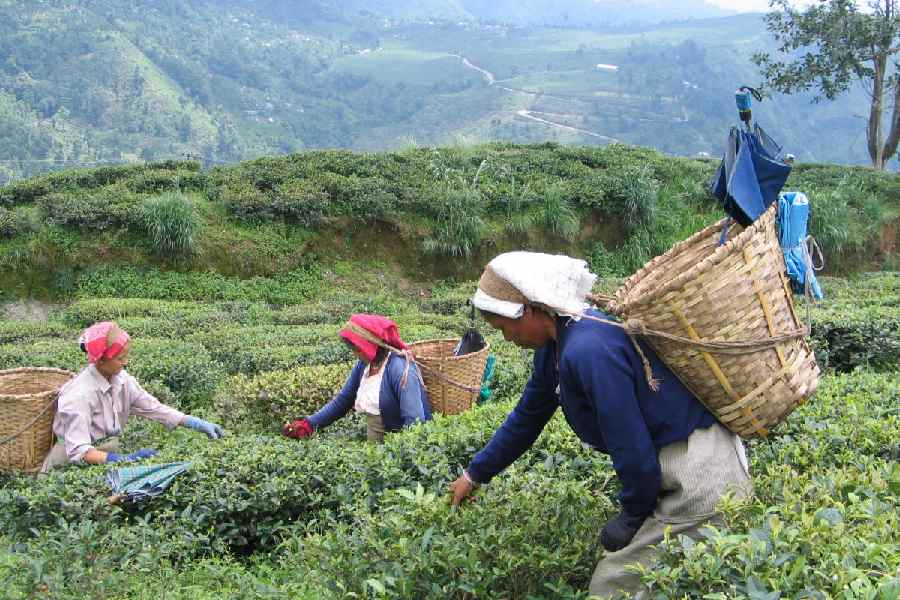The Gorkhaland Territorial Administration (GTA) has called a meeting with all trade unions operating in Darjeeling tea gardens on Saturday to discuss the formation of a team for land survey for the eventual distribution of pattas of plots to tea workers.
Sources said that Anit Thapa, chief executive of the GTA, is expected to attend the meeting along with other GTA and district land reforms officials.
“The meeting will be held at Darbar Hall at Lalkhoti from 11am on Saturday. Nine operating tea unions in Darjeeling gardens have been invited,” said a source.
The source said that the agenda of the meeting was “to discuss the issues regarding formation of a team for land survey following the November 2 notification from the state government”.
On November 2, the state government directed district magistrates of Darjeeling and Kalimpong to “resume survey work in tea gardens in GTA areas on “as is where is basis” without reference to any limitation on area held.
The state government had on September 12 ordered the DMs of the two districts to put on hold all jobs related to distribution of homestead pattas in tea gardens after protests erupted on grounds that the state would only distribute up to 5 decimals of land per household as mentioned in the first notification dated August 1.
Hill leaders maintained that many garden residents had more than 5 decimals of land.
The November 2 government notification has not placed any cap on the land ceiling for survey.
Planters in the hills, however, maintain that the state government is sounding a death knell to the industry.
“Darjeeling gardens are small because of topography. Whatever the state government is doing will seriously hamper the industry. It will be difficult to manage the gardens when you have islands in the middle of the garden not under your control,” said a planter.
He further added some people had also encroached on land. “The government is also encouraging encroachment,” the planter alleged.
A planter quested the fate of the industry if workers on getting pattas failed to join work in the garden or upon their retirement, their immediate next of kin didn’t turn up.
In the tea industry, the job of a worker is given to the next of kin, which ensures a pool of workers. However, the younger generation mostly does not want to work as tea leaf pickers and absenteeism is as high as 40 per cent in the hill gardens.
“Are we to set up more labour lines (if new workers are engaged)? Where are we to find new land to set up quarters (for new workers)?” asked a planter.











